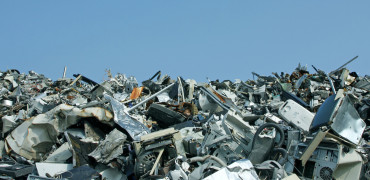My second Sustainability theme for 2021 is all about renewable energy.
All electricity generation technologies will contribute to greenhouse gas emissions at some point in their lifetime.
These technologies have both an Embodied Carbon - the carbon emissions generated though their construction; and an Operational Carbon - the carbon emissions generated as they are used.
The cleaner the grid and the products we use, the cleaner our planet too
Embedded carbon
Fossil fuel based technologies contribute emissions throughout their entire lifecycle - from construction through operation to decommission, representing high Embodied and Operational carbon.
These fossil fuels have been formed from decomposing plants and other organisms, buried and squashed over eons under layers of rock and sediment, to become the carbon-intense fuel we have become so reliant on.
These are ‘non-renewable’ fuels which have supplied the majority of energy in the world. Through the use of oil, gas and coal, we have powered the world.
However, when these fuels burn, they release carbon dioxide along with other greenhouse gases, and these in turn help to trap solar heat in our atmosphere. This is what makes them the primary contributors to global warming and climate change.
Doing nothing is NOT an option
Renewable energy technologies also have an Embodied Carbon cost, however their Operational Carbon emissions are much, much lower.
This difference in operational carbon is the reason why renewable energy technologies are our best route to 'cleaning' our energy grids
Early last year, my colleague Martin Fahey wrote about the coming decade and just how important it would be in helping decide the future of our planet – and of humanity.
One of the key things is going to be tackling climate change and, if possible, reversing some of the more extreme effects we’ve already seen, such as more extreme weather more regularly.
The greening of the grid, and the increased use of renewable technology will not eliminate carbon, but it will help us get nearer to zero carbon, more quickly – and we really need to remind ourselves that doing nothing is now simply NOT an option!
Things are speeding up
Financial investment into clean energy is also driving prices down – which then means that the bigger electricity companies are forced to get involved, driving progress further and faster.
The same can now be seen in the world of heat pumps, where the current market is attracting interest from the ‘big’ heating companies, who are quickly ramping up their renewable heating options as they realise that consumers are behind this move to ‘save the planet’ and are switching more rapidly to green solutions.
The Government has also realised the value in placing an emphasis on a 'Green recovery' and of course, we are already legally signed up to stringent Net Zero targets, which will continue to push demand ever higher.
As a manufacturer of electric products that benefit society, we should all be keen for renewables to continue to clean our energy grid; the cleaner the grid, the more our products will benefit not only our customers, but our planet too.
Jack Bain is a member of the Sustainability team



